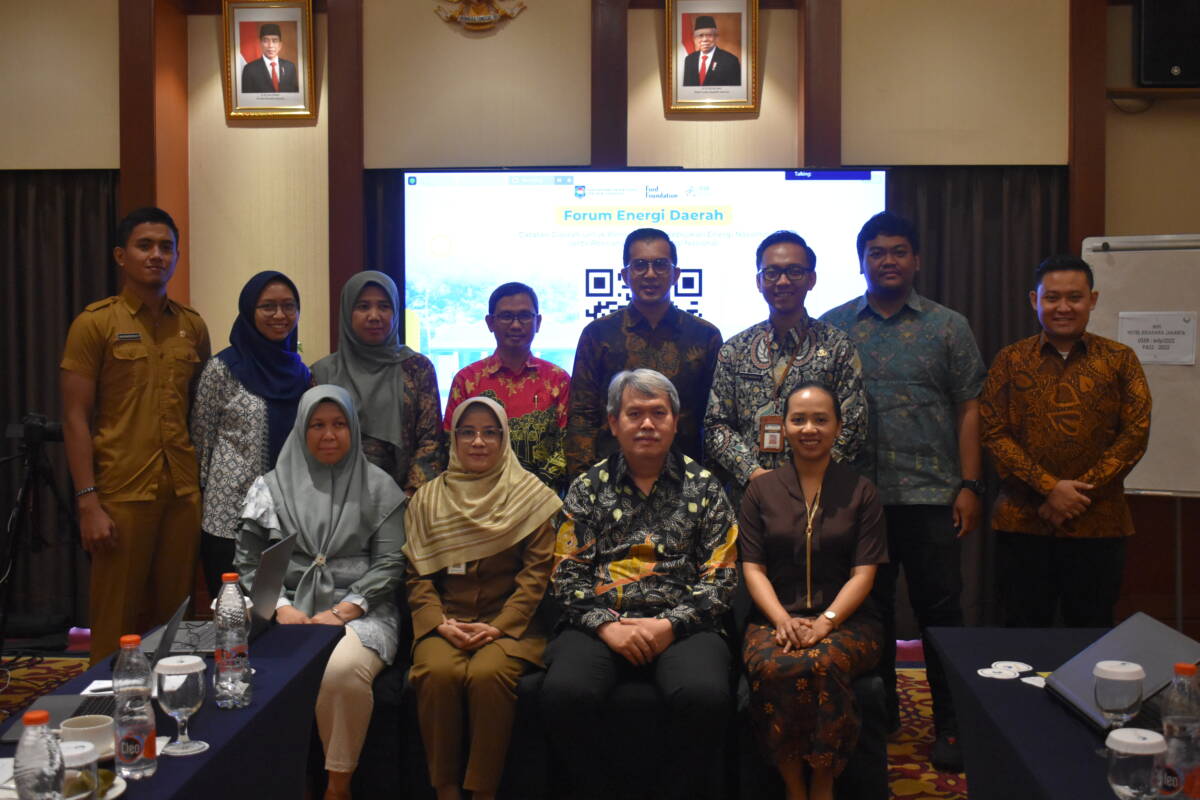Jakarta, 7 November 2023 – The role of regional governments in accelerating the energy transition is expected to become increasingly significant. The Ministry of Home Affairs as the parent body that facilitates regional governments is trying to facilitate this need by issuing Presidential Regulation (Perpres) No. 11 of 2023 concerning additional concurrent government affairs in the energy and mineral resources sector in the renewable energy sub-sector.
It is hoped that the existence of a legal umbrella for regional governments will provide additional authority for regional governments and will have a linear impact on accelerating the energy transition.
Sri Retnowati, Young Expert Policy Analyst at the Directorate of Synchronization of Regional Government Affairs I, Ministry of Home Affairs, emphasized that with the issuance of Presidential Decree 11 of 2023, it is hoped that regional governments will have more freedom in taking program initiatives.
“Limited authority is closely tied to budget limitations, so through policy instruments, we give more authority to regions,” said Retno.
Retno added that there are still complaints that Presidential Regulation No. 11/2023 is still not effective, especially regarding fiscal capacity that cannot yet be used. Retno revealed that this made several regions choose not to immediately implement Presidential Decree 11/2023.
Ariansyah, Representative of the South Sumatra ESDM Service, explained the division of authority for industrial licensing. If all industrial permits are gathered in the central government, it will be difficult for local governments to monitor and take firm action against industrial players who do not support the government’s agenda, such as using less efficient energy or not implementing energy conservation practices.
Highlighting the formulation of the Draft Government Regulation on National Energy Policy (RPP KEN) which is currently being worked on by the National Energy Council, Ariansyah views the need for provisions regarding energy conservation to support the achievement of regional energy mix.
“In the draft of the new RPP KEN we see that the energy conservation point has been removed. If this applies, South Sumatra’s renewable energy mix will decrease, because South Sumatra’s renewable energy mix, which currently reaches 23%, is mostly contributed by industries that we ask to carry out conservation. energy,” said Ariansyah.
Yunus Saefulhak, Head of the Energy Policy and Conference Facilitation Bureau, National Energy Council (DEN) on the same occasion said that the big goal of the revised energy policy in Indonesia is to increase energy security while providing energy at affordable prices.
“Apart from that, (the revised KEN-ed) also aims to meet rational energy needs to achieve high human and economic development index targets as a developed country and realize decarbonization and energy transition to reach peak emissions before 2045 and NZE in 2060, said Yunus.

